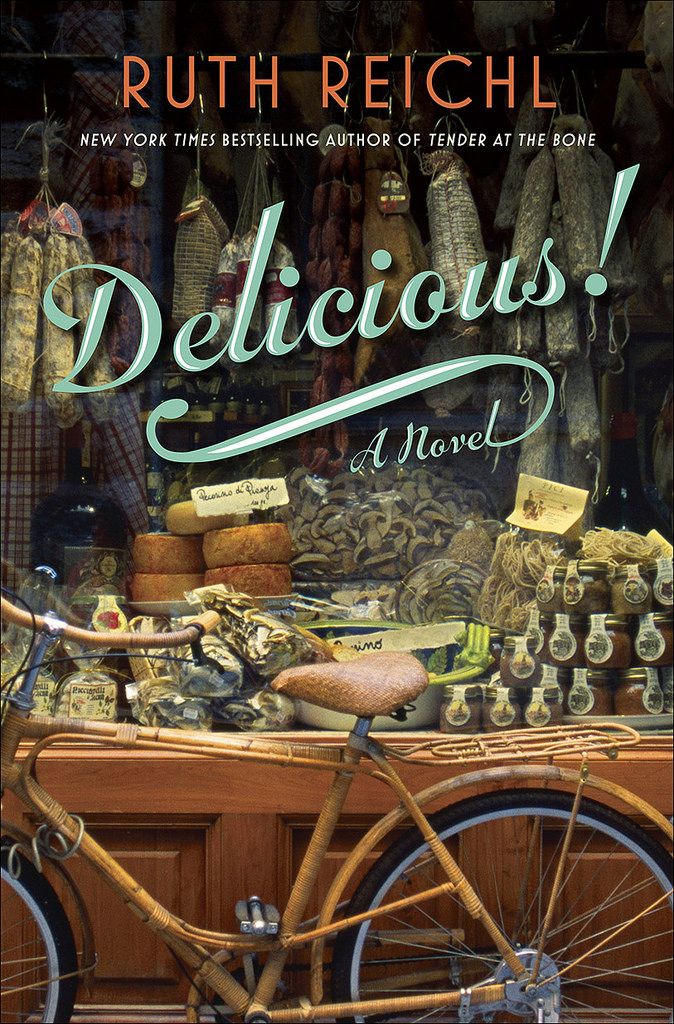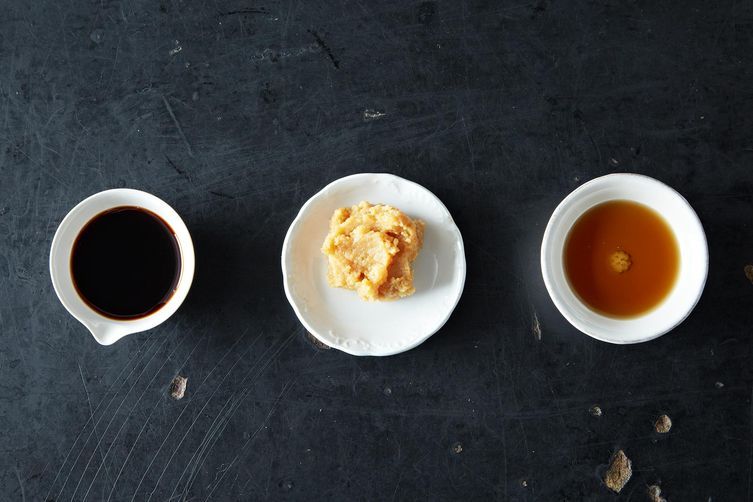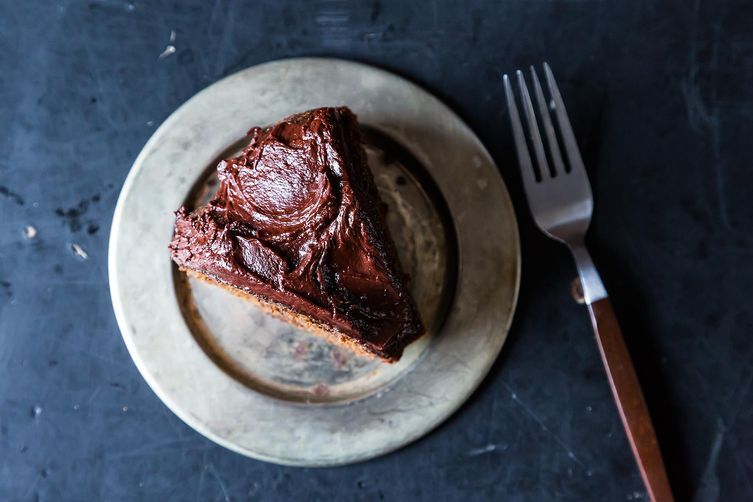We're sitting down with our favorite writers and cooks to talk about their upcoming cookbooks, their best food memories, and just about anything else.
Today: Ruth Reichl talks kitchen essentials, fiction writing -- and the three food words you should never say again.


Ruth Reichl's twitter feed has incited lots of curiosity about the former Gourmet editor-in-chief: Is she really eating all of these esoteric savory breakfasts? Does she think in haiku? What sorts of birds are chirping in her world this morning?
But Reichl's sweet, kooky brand of internet poetry often discusses what she's eating, rather than what she's cooking; so, in the wake of her first novel, Delicious!, we thought this a perfect time to ask Ruth what's in her pantry, and what she cooks when there's not much around. And then we snuck in a few questions about her new book. (Writing fiction sounds scary!)
If you've ever wanted to model your pantry after Ruth Reichl's, read on. Also, fun fact: Her desert islands come with refrigerators.
What are your favorite ingredients to keep on hand for livening up dishes and brightening flavor?
Lemons. Soy sauce. Fish sauce. Anchovies. Miso. Apple cider vinegar. Cream sherry. Maple syrup. I'm never without any of them.

What do you cook for yourself when you have nobody to feed?
Eggs in some form or another. Maybe as matzo brei. Or perhaps beaten into chicken stock. Tossed into spaghetti carbonara. Stir-fried into scallion-fried rice. Eaten over black beans. Or simply fried, sunny side up, with toast.
What are your "desert island" pantry items -- the things you'd have to have with you if stranded?Unsalted butter (I assume there’s refrigeration). Lemons. Parmesan cheese.
You recently defended the word "delicious" (in the Times restaurant critic feature) -- but what food writing words do you detest?
At Gourmet, my staff kept a list of forbidden words. “Yummy” is at the very top, I know that, but I wish I could remember the others. “Scrumptious” is pretty bad. I loathe “eatery.” I have no quarrel with “unctuous,” but it is constantly misused; it is not a positive word.

Billy, Delicious!'s protagonist, has a signature Gingerbread Cake that plays an important role in the book -- how long did it take you to develop that recipe? Why gingerbread and not another kind of cake?
As a writer, if you want a character who’s a little girl with a fantastic palate to reinvent a recipe, you need to avoid anything fancy or she’ll seem like a pretentious twit. Gingerbread -- so down to earth, so basic -- was my way of avoiding that problem.
Gingerbread was brought to Europe in the 11th century by monks returning from Asia, and it’s known in some form or another in most parts of the world. But the classic American version, which relies more on molasses than ginger, seemed ripe for reinvention now that fresh ginger has become a supermarket staple.
But fresh ginger turns out to be difficult to work with in baked goods. Use too much, and the texture gets damp and heavy. Use too little, and you don’t get the flavor kick. It took quite a while to work out the recipe, and once I’d done that, I passed the recipe on to two friends and asked them to improve it. This was very much a group effort.
More: Try dressing up your gingerbread with a chocolate glaze.

What was your biggest challenge in writing fiction? How did your process differ from that of writing memoirs?
My biggest challenge was getting to know the characters. I actually had to write an entire book, just for myself, which laid out the backstory of each character in the book. Then I threw that out.
That was the hard part. Once I’d done that, once I had all the characters fixed firmly in my mind, the writing was pure pleasure; I went into my writing studio every day, eager to find out what was going to happen to them. With nonfiction, the facts are a given; there are no surprises. When you’re writing fiction, anything can happen; it’s so much more fun.
Photo of Ruth by Fiona Aboud; first gingerbread photo by Mark Weinberg; all other photos by James Ransom







See what other Food52 readers are saying.